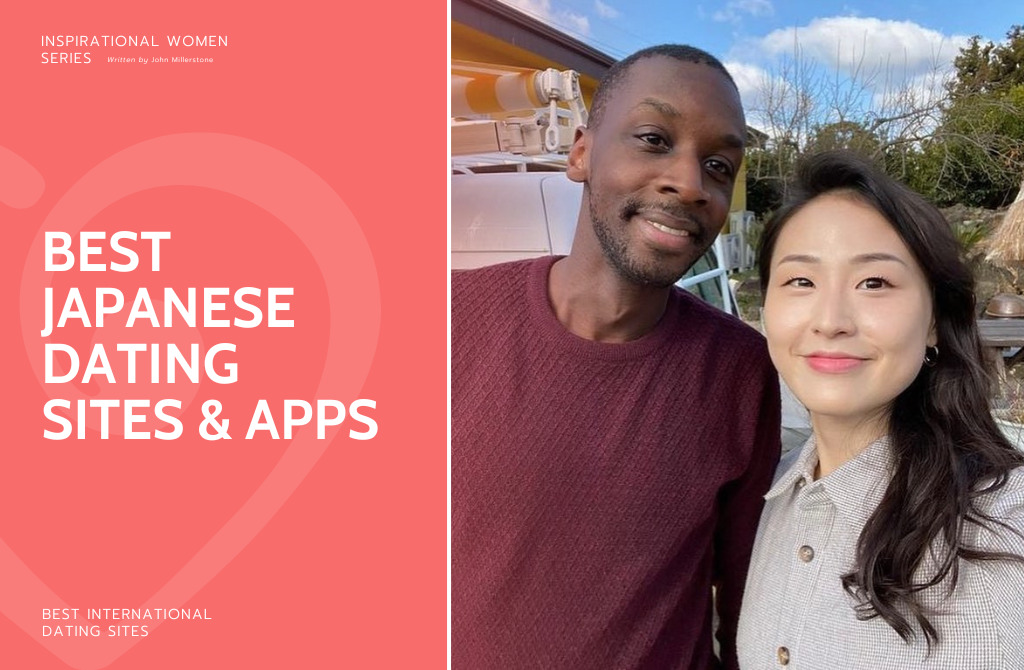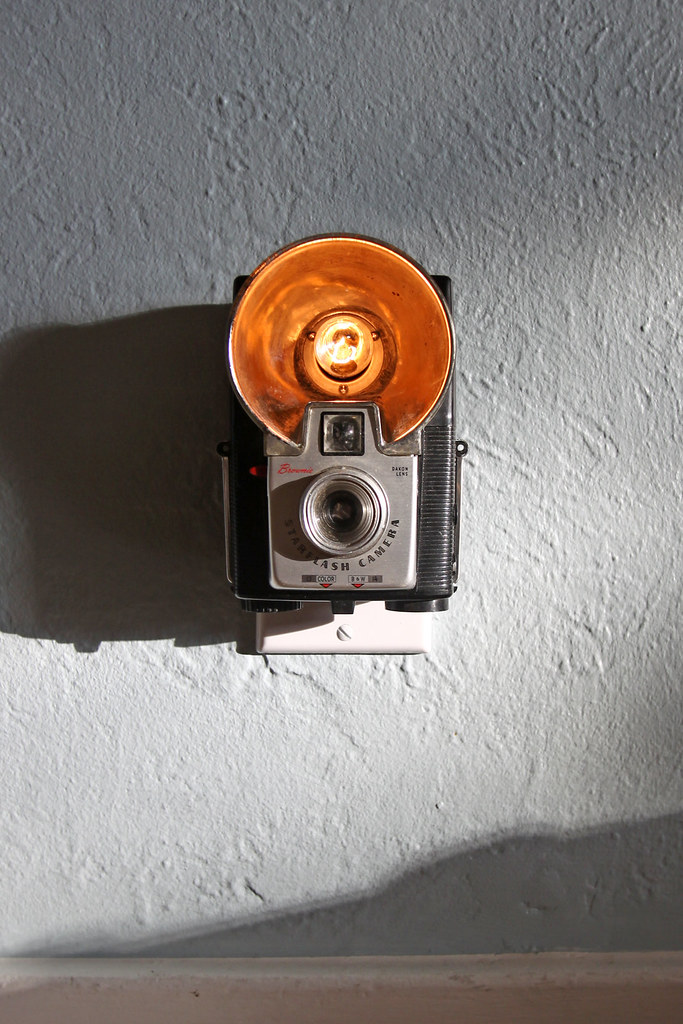
The dating world can sometimes feel like a wild, untamed jungle, right? You meet someone amazing, there’s a spark, and things start moving in a promising direction. But then, almost out of nowhere, something shifts. You might start feeling off, becoming overly critical, or letting jealousy creep in, and before you know it, another potential partner has vanished into thin air. It’s a frustrating, often heartbreaking cycle that leaves you wondering, ‘What went wrong?’
What if we told you that sometimes, the biggest obstacle in your love life isn’t external forces or bad luck, but something you’re doing yourself—often without even realizing it? This phenomenon is called self-sabotage, and it’s a silent relationship killer that can turn your dating life into a minefield. These behaviors, often rooted in past experiences, fears, or a lack of relationship skills, can manifest in subtle ways, pushing away the very love you desire even when you genuinely want a connection.
It’s time to pull back the curtain on these sneaky habits. We’re going to dive deep into 14 common ways you might be unwittingly ruining your chances at lasting love. In this first part of our journey, we’ll explore the first seven patterns that often stem from internal conflicts and communication mishaps. Recognizing these behaviors is the crucial first step toward understanding why your relationships might hit a wall, and ultimately, building the healthy, fulfilling partnerships you truly deserve.
1. **Repressing Your Negative Emotions**Ever feel a surge of frustration or anger, only to swallow it down with a tight smile? It’s a common coping mechanism, but a dangerous one for your relationships. The context clearly states that “Suppressing negative emotions can cause them to erupt and doom your relationship.” This isn’t just about hiding a bad mood; it’s about a deeper pattern of avoiding emotional honesty, which inevitably builds internal pressure.
When these suppressed feelings finally burst forth, the impact can be devastating. “An unexpected blowup can push your partner away,” because they “may feel blindsided by your sudden outburst, which makes it difficult for them to feel safe in the relationship.” Imagine a relationship where one partner never truly knows what the other is feeling until it’s too late – that’s the instability this behavior creates.
Beyond the explosive moments, repressing your emotions also prevents you from showing up authentically. “When you reveal how you truly feel, your partner might feel like they’re the victim of a bait and switch.” They might realize they’ve been interacting with a carefully constructed façade rather than the real you, eroding trust and emotional intimacy. This lack of genuine self-expression creates a significant barrier to deep connection, making it hard for your partner to truly know and understand you.

2. **Going Exclusive With A Stranger**There’s a thrill that comes with a new connection, those intoxicating early days where everything feels fresh and exciting. But sometimes, we can get swept away a little too quickly. “Committing to exclusivity quickly with someone you barely know is a common self-sabotaging behavior.” It’s the relationship equivalent of buying a house after only seeing the exterior.
The danger here is that “Relying only on your feelings in the moment isn’t enough information to know if they’re a good match for you long-term.” When you rush into commitment, you often don’t allow enough time for reality to set in. This premature exclusivity “can cause you to ignore red flags, put on rose-colored glasses, and only see them in the best light,” creating an idealized version of your partner and the relationship.
This rapid progression also places immense pressure on a nascent connection. “Rushing into a commitment can also lead to unrealistic expectations, placing too much pressure on an undeveloped relationship.” When a relationship hasn’t had the chance to naturally grow and establish a solid foundation, these heightened expectations can cause it to crumble, leaving both parties disappointed and potentially hurt. It’s a setup for failure, all too often.
Read more about: Hollywood Heartthrobs & Music Moguls: The Unbelievable Details Behind Sydney Sweeney and Scooter Braun’s Shocking New Romance!

3. **Taking Rejection Personally**Let’s face it, rejection stings. It’s a universal human experience, but how you react to it can make all the difference. When someone chooses to move on, “The reason someone chooses to move on aren’t about you.” It’s a hard truth, but it highlights that “Finding an ideal match takes time, and it’s important to accept that not everyone is going to be your person.”
However, for those prone to self-sabotage, rejection becomes a deeply personal indictment. “This self-sabotaging behavior eats away at your self-esteem and confidence.” It sparks a relentless cycle of self-criticism, where you “become hyper-critical of your own behavior and question every move you make,” constantly replaying scenarios and finding fault with yourself. This internal dialogue can be incredibly destructive.
This self-abandonment doesn’t just hurt your confidence; it can transform you into a people-pleaser, leaving you feeling utterly powerless. You might start contorting yourself to fit what you *think* others want, leading to an exhausting and inauthentic dating experience. Ultimately, you’ll “end up feeling exhausted by dating and worrying that no one will ever choose you,” trapping yourself in a cycle of fear and insecurity that pushes away genuine connection.
Read more about: Dog Person Adopts Kitten: Hilarious & Heartfelt Moments When Pups Become Unexpected Cat Parents
4. **Avoiding Conflict**Nobody loves a confrontation, but here’s the thing about relationships: “Misunderstandings and conflicts are inevitable in relationship.” They’re a natural part of two distinct individuals trying to navigate life together. The problem arises when you actively try to sidestep these necessary interactions.
Your well-intentioned “attempts to go along to get along will sabotage your chances at lasting love.” By avoiding uncomfortable conversations, you deny your relationship the chance to grow and strengthen. You’ll “never know if someone will stick by you for the long haul or accept you as you are,” because you haven’t given them the opportunity to demonstrate their commitment through shared problem-solving.
This avoidance isn’t a long-term solution; it’s a slow poison. “Avoiding conflict builds a wall between you as unresolved issues fester and eventually blow up.” Small issues, left unaddressed, accumulate into insurmountable barriers. “Couples grow apart because they’re unable to resolve their differences and avoid having uncomfortable conversations,” missing out on the deeper connection that can emerge from navigating challenges together. Learning to talk through tough stuff is truly a superpower for any couple.
Read more about: Beyond the Spotlight: Unveiling the Unseen Truths and Troubled Soul of Marilyn Monroe’s Private Life

5. **Rejecting Before You Can Be Rejected**Here’s a classic defense mechanism: you push someone away to protect yourself from the potential pain of them leaving first. “A common self-sabotaging behavior is to protect your heart by rejecting someone before they can reject you.” It feels like a logical self-preservation tactic, ensuring you stay in control of the narrative and your emotions.
While this strategy might make you feel secure in the short term, it comes at a steep price. “Rejecting someone first ensures that you remain in control and avoid being hurt, but you won’t have a lasting, loving partnership either.” It’s a guaranteed way to keep love at arm’s length, preventing any deep, vulnerable connection from forming. You win the battle against potential heartbreak, but lose the war for genuine intimacy.
The root of this behavior often lies in deep self-judgment. “This strategy is commonly used by people who are afraid their flaws will be exposed.” Because “They judge themselves and therefore have a hard time believing a partner won’t also be hard on them.” This fear of being seen and found wanting drives a pre-emptive strike, creating a cycle where you deny yourself the chance to be accepted for who you truly are, perceived flaws and all.
Read more about: Exposed: 14 Dark Secrets and Scam Tactics of the Wellness Industry’s Most Deceptive Gurus

6. **Overthinking Your Communication**Do you spend hours crafting a text, only to delete it and start over? Or ruminate on every single word said during a date? If so, you might be falling into the trap of overthinking your communication. “You can end any chance you have of meeting your ideal match by overanalyzing your communication.” This internal monologue can be incredibly draining and counterproductive.
This analytical paralysis often strikes at critical moments. “Overthinking causes analysis paralysis and before you know it the opportunity has passed you by.” You might second-guess yourself into silence, “ruminating over previous conversations, or clamming up for fear of saying the wrong thing.” These internal struggles effectively sabotage your ability to create an authentic, spontaneous connection with someone new.
The sad reality is that often, “The relationship is over before it ever began” due to this pattern. By getting lost in your head and failing to engage openly and naturally, you prevent any real rapport from developing. Your potential partner never gets to see the real you, because you’re too busy editing and censoring, building a wall of perceived perfection that keeps genuine intimacy out.
Read more about: Sabrina Carpenter: Decoding Her Daring Style, Chart-Smashing Albums, and Unfiltered Insights from a Pop Sensation on the Rise

7. **Low-Effort Communication**In our fast-paced, digital world, it’s easy to default to quick, minimal interactions. But when it comes to forming real connections, “Ghosting, canceling last minute, or communicating mostly via text are all self-sabotaging behaviors that block you from love.” These aren’t just minor missteps; they send powerful, often negative, messages.
These patterns are inherently “low-effort, low-investment behaviors that reveal a lack of interest or respect for any potential partner.” Think about it: how valued do you feel when someone consistently flakes, sends one-word replies, or simply disappears? Such actions create a sense of being disposable, making it nearly impossible for a genuine bond to form or for trust to develop.
Behind these behaviors can lie a multitude of reasons: “Whether you have a lack of interest, are insecure or selfish, lack communication skills, or the ability to take responsibility for your choices, these self-sabotaging behaviors are a block to creating lasting love.” Ultimately, if you’re not willing to put in the consistent, thoughtful effort that true connection demands, you’re inadvertently ensuring your love life remains stuck in neutral, never quite reaching its full potential.
Alright, so we’ve journeyed through some truly sneaky ways we self-sabotage, from bottling up emotions to overthinking every text. But hold on, the rabbit hole goes even deeper! In this second part of our deep dive, we’re uncovering seven more critical patterns stemming from issues around trust, unrealistic expectations, and a fear of commitment. Recognizing these hidden barriers is your first step towards building the solid, loving partnerships you’ve always dreamed of. Let’s get into it!

8. **Breaking Trust**Trust is like the invisible glue holding any healthy relationship together, a key ingredient for true emotional intimacy. When that trust is broken, whether through little white lies, significant deceptions, or even being unfaithful, it’s like chipping away at the very foundation of your connection. The context points out that “Breaking trust by lying, being unfaithful, or not honoring commitments undermines the foundation of a relationship.” It creates a sense of betrayal that’s incredibly difficult to bounce back from.
This isn’t just about grand acts of deceit; trust can also erode by being unreliable, weaponizing incompetence, or not being available when a partner needs you. Imagine constantly feeling like you can’t rely on someone – these behaviors slowly but surely chip away at a partner’s faith in you.
What’s more, when confronted, people who break trust often make things worse by getting defensive or refusing responsibility. This only deepens the wound and makes it harder to rebuild the necessary emotional safety and connection for love to thrive. If you struggle with honesty or reliability, it’s a huge red flag; rebuilding trust takes consistent effort and full responsibility for your actions.
Read more about: Beyond the ‘Good Old Days’: A Psychology Today Guide to Understanding Why We Get Stuck in the Past and How to Break Free

9. **Becoming Jealous, Possessive Or Paranoid**Ever caught yourself scrolling through your partner’s phone, or constantly questioning their whereabouts? If a green-eyed monster starts lurking in your relationship, demanding constant reassurance or trying to control your partner’s every move, you’re definitely stepping into self-sabotage territory. “This self-sabotaging behavior makes it impossible for love to last,” because “Paranoia, possessiveness, and jealousy create an environment of distrust and insecurity.” Simply put, love needs air to breathe, and these behaviors just suffocate it.
When you’re constantly suspicious, your partner ends up feeling suffocated, unappreciated, and constantly under a microscope. Think about it: how exhausting would it be to always have to prove your innocence or justify your actions? The context highlights that “Your partner may end up feeling suffocated and unappreciated, plus the constant need for reassurance can be exhausting.” This dynamic doesn’t foster love; it breeds resentment and pushes the other person away, even if they genuinely care for you.
At its core, this pattern stems from a place of deep insecurity within yourself. It’s often not about your partner’s actions, but about your own fears of abandonment or not being good enough. The context is clear: “Love can’t flourish without mutual trust.” When you can’t trust your partner, or worse, when you create situations where they feel they can’t trust you *not* to be possessive, you’re building a wall, not a bridge, to a lasting connection.
Working through jealousy means looking inward, building self-esteem, and understanding the root of these fears. It’s about choosing to believe in your partner, rather than letting fear call the shots. Openly communicating your insecurities without accusation can be a crucial first step.

10. **Trying To Avoid Rejection**We get it, rejection stings – nobody enjoys it. But here’s the thing: sometimes, in our fierce desire to protect ourselves from that pain, we actually block love from coming in. The context tells us that “Trying to avoid rejection by pushing others away before they even have a chance to accept or reject you will keep your heart safe but make it impossible to create connection.” It’s a tricky defense mechanism where you become the gatekeeper of your own heart, inadvertently locking out potential happiness.
You’re building emotional walls, making it impossible for anyone to get close enough to hurt you, or truly see you. “No one is going to scale the walls you’ve built around your heart to discover the hidden gold inside.” This reinforces your fear of rejection, cementing the belief that love can’t be trusted, keeping you safe but alone.
Love, by its very nature, requires vulnerability and risk. The context acknowledges that “Love requires risk, and if you’re unable to risk your heart then you’ll end up alone.” It’s a tough pill, but true connection blossoms when you’re willing to open yourself up, even if it means the possibility of getting hurt. Building relationship resilience means learning to bounce back, not avoiding setbacks.
Read more about: Beyond the Obvious: Unpacking the Hidden Psychological Barriers Keeping You Single, According to Experts

11. **Resistance To Dating**Okay, we all have those days where the thought of swiping through profiles or getting ready for another first date feels like a monumental task. But for some, this isn’t just a temporary slump; it’s a deep-seated resistance to dating itself. This becomes a self-sabotaging behavior when you “believe that you don’t have to date to meet your person, as if you’ll magically meet your ideal life partner at work, your regular coffee shop, or in line at the grocery store.” While those serendipitous encounters are fun in movies, in real life, actively putting yourself out there is often key.
The reality is, “Actively dating through a dating app is the most effective way to get dates and meet a potential life partner.” Simply waiting for ‘the one’ to magically appear often leads to endless waiting. This resistance isn’t just about laziness; it often stems from protecting a broken heart, fear of abandonment, low self-esteem, or being cynical about love.
Ultimately, regardless of the cause, the outcome is the same: “the end result is still the same—no partner to share your life with.” If you consistently avoid dating, it’s worth exploring what truly holds you back. Sometimes, the bravest step is the first step out of your comfort zone, even if it’s just updating your dating profile.
Read more about: China’s Naval Ascendancy: A Data-Driven Examination of its World-Class Fleet’s Strengths and Strategic Vulnerabilities
12. **Being Overly Judgmental Or Critical**Do you find yourself dissecting every flaw, every small imperfection in potential partners, often before they’ve even had a chance to show you their true colors? This habit of being “overly critical or judgmental of everyone you meet not only blocks you from love but also causes you to believe that there isn’t a match for you.” It’s like having an impossibly long checklist that no human being could ever truly fulfill, essentially ensuring you remain single.
The core issue here isn’t just about being picky; it’s often a reflection of how you treat yourself. The context powerfully states, “Judgment is the biggest block to love, and its source is usually self-judgment.” If you’re constantly critical of yourself, if you battle with perfectionism or low self-esteem, you’re likely to project that same harsh judgment onto others. It’s a tough cycle where “Perfectionism or self-criticism leave you feeling like nothing you do is ever good enough.”
When you operate from this place, your “judgment is projected onto potential partners who can never live up to your unrealistic standards.” You’re inadvertently setting them up for failure, constantly finding reasons why they’re not quite ‘it,’ even if they’re wonderful people. This isn’t about discerning good from bad; it’s about holding onto an impossible ideal that prevents any genuine connection from forming.
Breaking free means extending compassion to yourself and others. “At some point you have to let your best be good enough so that someone else’s best can be good enough for you.” It’s about embracing imperfection, recognizing true love isn’t about finding a flawless person, but accepting someone’s imperfections.
13. **Not Asking For What You Want Or Need**Imagine hoping your partner will magically know you want flowers on your birthday, or that you need a quiet night in after a tough week, without ever uttering a single word about it. If this sounds familiar, you might be sabotaging your relationships by not asking for what you truly desire. The context is very clear: “You can’t get what you want if you don’t ask for it.” Expecting your partner to be a mind-reader is a recipe for disaster.
This isn’t just an unrealistic expectation; it’s a significant barrier to feeling truly fulfilled. “It’s an unrealistic expectation that when you meet the right person they’ll intuitively know what you need and how to make you happy.” When you believe your partner *should* just know, and they don’t, it leaves you feeling unheard and unseen, leading to a deep sense of dissatisfaction. This kind of thinking can lead you to believe “you’ll never meet someone who can meet your needs.”
The consequence of this silence is significant: “If you never speak up you’ll never feel fulfilled in your relationships.” Unspoken resentment and disappointment fester, eroding connection, and ensuring no relationship can last. Learning to express needs is fundamental, fostering open dialogue where partners feel seen, heard, and supported – a huge step towards true intimacy.
Read more about: Unveiling the Layers: 12 Profound Stories of Tattoo Regret and the Journey to a Clean Slate

14. **Controlling Behavior**Alright, let’s talk about a behavior that can completely drain the life out of a relationship: controlling tendencies. This is when one partner tries to “dominate the other’s actions, choices, or even thoughts,” as outlined in the context. It can manifest in ways big and small, from dictating who your partner can spend time with, to making all decisions without consultation, or even micromanaging aspects of their personal life. It’s a heavy burden to place on any connection.
The unfortunate truth is that controlling behavior often springs from a place of insecurity, low self-esteem, or even past experiences of betrayal within the controlling individual. The context explains, “The controlling partner may fear losing the relationship or feel that they can only keep it intact by exerting control.” It’s a misguided attempt to secure the relationship by tightening the reins, but it invariably has the opposite effect.
When one person attempts to control another, it utterly strips away their autonomy. “Control strips a person of their autonomy and creates a power imbalance.” The partner on the receiving end often feels suffocated, resentful, and loses their sense of self within the relationship. This lack of emotional safety and independence is incredibly damaging and unsustainable for any long-term, loving bond. It turns partnership into possession, and that’s not love.
Breaking free involves a crucial shift: “Work on Self-Trust: Focus on building your own sense of security and self-worth rather than relying on control.” Actively encourage and celebrate your partner’s individuality and freedom. Open dialogue, where fears are expressed and reassurances given within mutual respect, is vital to transforming a controlling dynamic into genuine support and equality.
Read more about: More Than a Role: 11 Actors Who Brought Their Real-Life Pain to the Big Screen
Wow, we’ve really peeled back the layers on some deep-seated habits, haven’t we? From repressing emotions to unknowingly pushing away good people, the path to a healthy, lasting love isn’t always straightforward. But here’s the exciting part: becoming aware of these patterns is the monumental first step! Recognizing *how* you might be sabotaging your dating life gives you the power to change it. It’s about being kind to yourself, learning new communication skills, challenging unrealistic expectations, and most importantly, daring to risk your heart. Because true love, the kind that lasts, isn’t found in avoiding hurt, but in building the resilience to bounce back and keep your heart wide open. You absolutely deserve the love you desire, and with this newfound awareness, you’re well on your way to creating it. Let’s make that love story happen!







